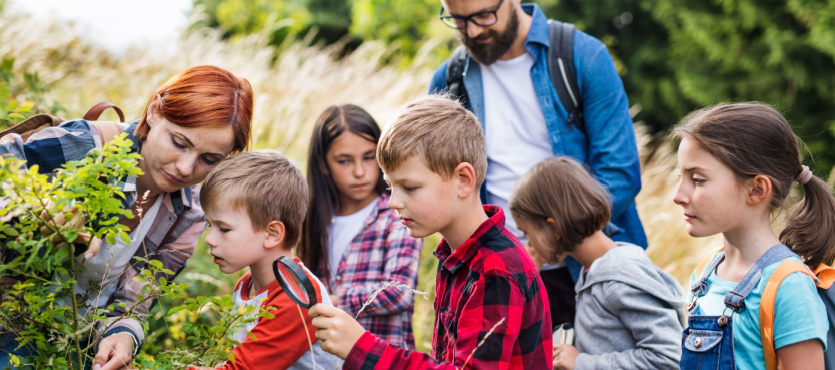For instance, daycare camps such as Camp Live Oak, strive to maximize the educational benefits of field trips. Our instructors ensure they are well-planned, integrated into the curriculum, and followed by reflective discussions or assignments to reinforce the learning experience. To understand their role better, let us look at some key aspects of how field trips contribute to a comprehensive education:
- Experiential Learning
Field trips allow children to directly engage with interesting topics they are studying. Whether it’s visiting a museum, a historical site, a science center, or a farm, students can touch, see, and experience concepts firsthand, which enhances their understanding and retention of information.
- Application of Knowledge
Field trips provide students with the chance to apply what they have learned in the classroom to real-life situations. During the field trip, encourage them to make notes or keep a journal. Ask them to write down interesting facts, observations, and your own reflections. This will help them understand how the field trip affected them personally.
- Enrichment of Curriculum
Field trips can enrich and extend the curriculum by exposing students to topics and experiences that may not be feasible to replicate in the classroom. For example, a trip to an aquarium can introduce students to marine life in ways that textbooks cannot. Similarly, a visit to the museum can help children better understand history through paintings, scriptures, models, and more.
- Cultural and Social Awareness
Visiting different places and interacting with diverse people during field trips can promote cultural and social awareness. It helps children develop a broader perspective on the world, fostering tolerance, empathy, and an appreciation for different cultures and backgrounds.
- Skill Development
Field trips can help develop a wide range of skills, including observation, critical thinking, problem-solving, communication, and teamwork. Students may also learn practical skills, such as map reading or navigation, during outdoor excursions. If you are keen on helping your children learn new skills, field trips are the way to go.
- Motivation and Engagement
Field trips can be highly motivating for children. The anticipation of an upcoming trip can increase their engagement and enthusiasm for learning, making it easier for parents to teach and inspire their students. One way to make field trips even more lucrative is by clubbing them with your family friends. This can help make the trip memorable.
- Memory Enhancement
Hands-on experiences often create lasting memories. Kids are more likely to remember what they’ve learned on a field trip because the experience is vivid and memorable. They will carry this knowledge to school and to their friends making up for positive learning experiences for everyone.
- Environmental Education
Field trips to natural environments, such as parks or wildlife reserves, can foster a sense of environmental stewardship and a deeper connection to nature. Learning about ecosystems, conservation, and sustainability becomes more meaningful when students can see the impact of these concepts in the real world.
The Best Daycare Programs for Your Children
At Camp Live Oak, field trips are a staple as we enjoy them and so do our campers. Registration for our Fall Camp Days is now open where we offer field trips, on-site adventures, guest speakers, and more. If you are looking to give your child a well-rounded camp experience this fall, give us a call today! [/vc_column_text][/vc_column][/vc_row]

